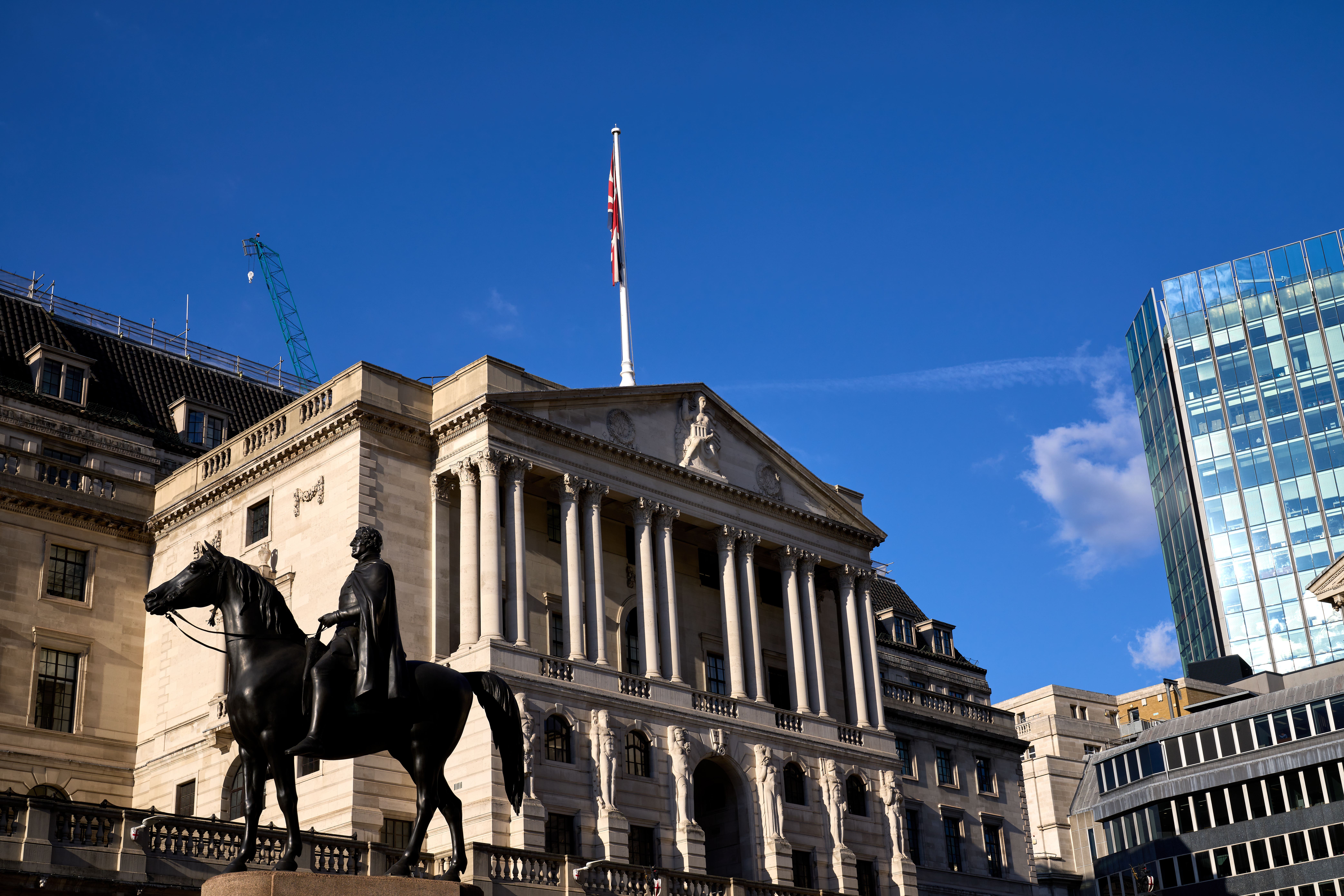Interest rates rise again as the government’s inflation pledge looks in danger
The Bank of England fears inflation will fall more slowly than it had hoped, writes James Moore


With the Bank of England having increased base rates to 4.5 per cent – the 12th consecutive rise – it’s starting to look like a slow-moving political car crash for Rishi Sunak and Jeremy Hunt.
Halving inflation by the end of the year is one of their key economic pledges. At the time the promise was first made, it looked very much like a cynical piece of political gamesmanship. After all, controlling inflation is principally the job of the bank’s Monetary Policy Committee (MPC).
The government can help by aligning fiscal policy with monetary policy. And Sunak has actually been doing that via stealth taxes, such as failing to raise thresholds, which drags more people into higher bands. Credit where it is due, holding the energy price guarantee for an extra three months was also a smart move. Nonetheless, the MPC is in charge of the chief lever: interest rates.
In making the pledge, the government seems to have scented an easy win. It will have been well aware that inflation is due to fall sharply as the energy price spike that began last year eases. Better still, energy prices have started falling even faster than expected.
So the government appeared to be set fair. With the MPC forecasting inflation of 3.9 per cent by the end of the year, it could have (unjustly) claimed the credit.
Trouble is, as we all know, economic forecasts have a habit of getting knocked over. The Bank’s commentary alongside the latest rise contained a number of warnings and changes to those forecasts. It is now expecting inflation to come in at something closer to 5.1 per cent by the close of 2023.
Energy prices might be heading the right way but food prices are another matter. Another worry for the Bank is the nagging persistence of “core” inflation, which strips out food and energy, both of which are ever-volatile, to give a measure of the underlying inflation at work in the economy.
Sticky core inflation is a worldwide phenomenon. There was some optimism in the US that the Federal Reserve may decide to pause its own recent cycle of rate rises after inflation undershot expectations by coming in at 4.9 per cent. Core inflation, at 5.5 per cent, also showed a slight decline but there has been scant sign of it responding to the Fed’s hard medicine. It has barely moved since the start of the year.
In Britain, the Bank warned that the risks to its forecasts remain “on the upside”. It wouldn’t now take much for the government to end up with egg on its face.
The Treasury will be crossing its fingers that Swati Dhingra and Silvana Tenreyro have it right. The MPC’s dovish pair of external members have consistently argued for a pause in rate rises. Their case is that it takes time for monetary medicine to work and that there is a risk of the MPC undershooting its cherished 2 per cent target in the medium term if it goes too hard now. They were the dissenters in the latest seven to two vote for a quarter-point rise. Right now, the MPC majority seems to be on the right track; it may not be until the beginning of 2025 that it hits its target, let alone having to worry about undershooting it.
Here the economy is working both for and against the government’s pledge. While it is still a slowpoke by international standards, UK plc is doing better than expected and the recession fears that dominated last year are now firmly in the rearview mirror. But it is running just warm enough to make the MPC’s job harder.
We may be close to the end of the rate cycle, but borrowers can probably expect at least one more increase, perhaps even two. It is not only the government that will be wincing and looking anxiously towards the end of the year. Borrowers are feeling real pain, with the Federation of Small Businesses reporting its members struggling to find affordable credit and standard variable mortgage rates hitting 7 per cent. Lenders always move quickly in response to the MPC. It takes a lot longer for the benefits to flow to savers.



Join our commenting forum
Join thought-provoking conversations, follow other Independent readers and see their replies
Comments